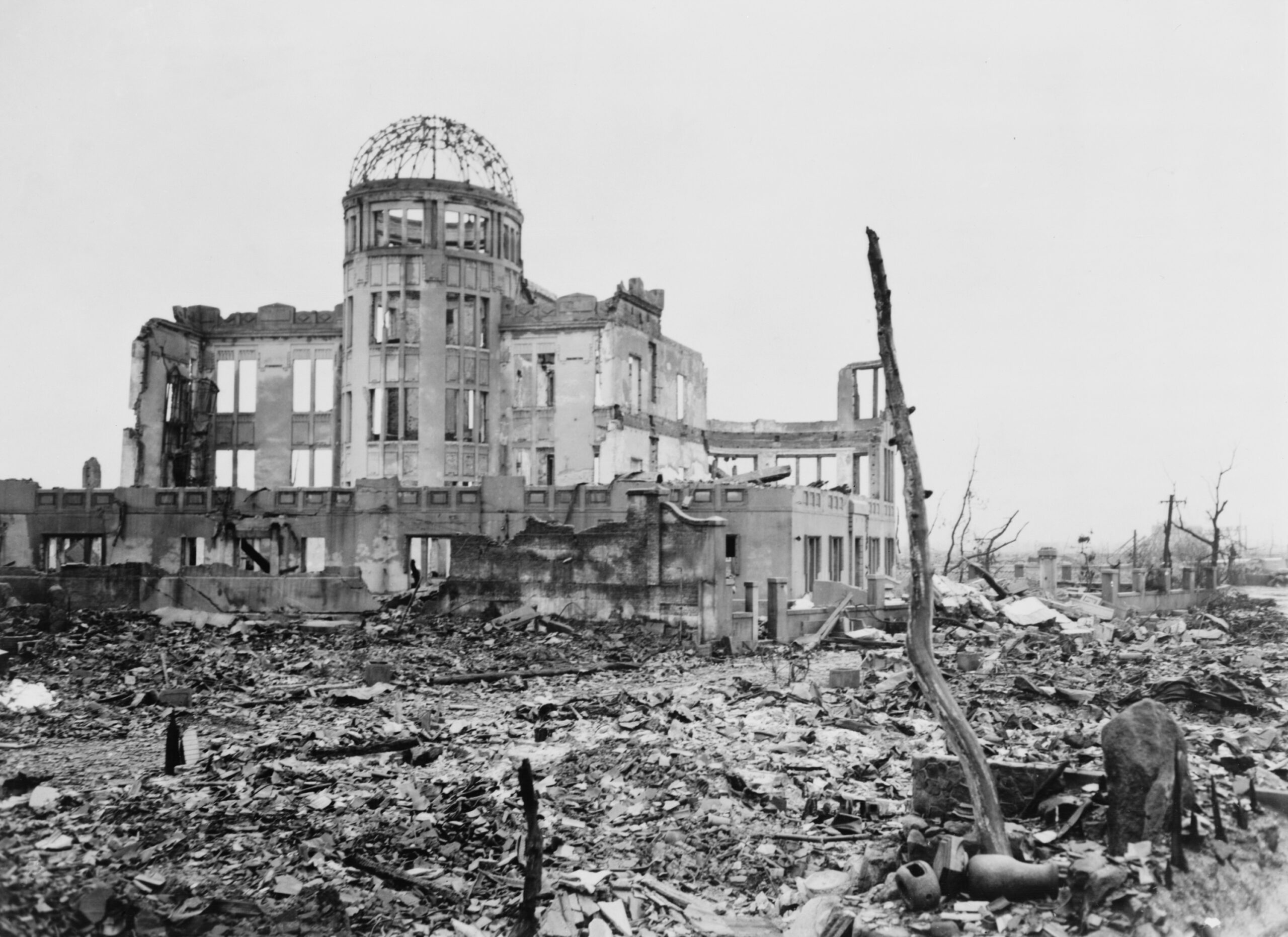Columban Fr Jim Mulroney writes about the scourge of nuclear weapons as Japan marks the anniversary of the horrific bombing of Hiroshima and Nagasaki.
At 8:15 am on August 6, the city of Hiroshima observed a minute’s silence for those who died and those who have born the scars of the horror of the atomic bomb that was dropped on the Japanese city 76 years ago to the day.
Speaking at a memorial ceremony at the Flame of Peace in the Peace Memorial Park, the mayor of the city, Kazumi Matsui, continued the long tradition of Hiroshima mayors in calling for the abolition of all nuclear weapons, saying, “Nuclear weapons, developed to win wars, are a threat of total annihilation that we certainly can end if all nations work together.”
Matsui drew a comparison between the scourge of nuclear weapons and the current Covid-19 pandemic, saying that the sickness is something over which we do not have control, but putting an end to the proliferation of nuclear arsenals is certainly something over which we can have absolute control.
He described these weapons as a threat to the ability of the human race to build a viable future. “No sustainable society is possible with these weapons continually poised for indiscriminate slaughter,” he said.
The president of the Catholic Bishops’ Conference of Japan, Archbishop Mitsuaki Takami, reiterated the plea for the protection of all life made by Pope Francis when he visited the city in 2019. At the beginning of the annual Church-sponsored Ten Days of Prayer for Peace, Archbishop Takami shared what he termed his conviction that protecting all life is indeed the only road leading to peace.
Archbishop Takami added that we must be aware that peace will not be born simply out of the abolition of nuclear weapons, but it is an important impediment that must be overcome along the path.
“We have to make many efforts toward peace,” he said, “to recreate the human spirit by insisting on the importance of the practice of love taught and shown by Jesus Christ.”
The Ten Days of Prayer for Peace runs from the anniversary of the Hiroshima bombing on August 6 to Japan’s surrender at the end of World War II on 15 August. It includes the anniversary of the dropping of the second atomic bomb on Nagasaki on 9 August. It has been held every year since Pope John Paul II visited Hiroshima in 1981.
Speaking to a gathering in the city’s Peace Memorial Park, Pope John Paul II uttered his now-famous words, “War is the work of man. War is destruction of human life. War is death.”
He continued, “Nowhere do these truths impose themselves upon us more forcefully than in this city… at this Peace Memorial. Two cities will forever have their names linked together, two Japanese cities, Hiroshima and Nagasaki, as the only cities in the world that have had the ill fortune to be a reminder that man is capable of destruction beyond belief.”
Then specifically addressing the mayor, he added, “Their names will forever stand out as the names of the only cities in our time that have been singled out as a warning to future generations that war can destroy human efforts to build a world of peace.”
He went on to stress that the ferocity and extreme violence of modern warfare is the result of the genius of human ingenuity, a genius that can equally be used to make peace if indeed the seeds of resolve and the will to do so can be sown and nurtured.
“To remember the past is to commit oneself to the future. I evoke before you the memory of 6 August 1945, so that we may better grasp the meaning of the present challenge.”
The 2017 Nobel Laureate organisation, the International Campaign to Abolish Nuclear Weapons, called for recognition of the victims of the blast, saying, “The most powerful way to honour the victims and survivors of nuclear weapons is to fight for the elimination of these abhorrent weapons.”
It is calling for a shift away from the prestige attributed to the ownership of a nuclear weapon, saying that the mindset that bestows prestige on nuclear arms must be shown up for what it is: immoral, illogical and illegitimate. This is the key to our future is a world without nuclear weapons.
The bishops of Japan remind us that the protection of all life must be our end goal, as life itself is far more important than one individual life. “We must keep in mind that we are all interconnected,” they say in a statement. “Protecting those connections will protect individual lives at the same time… Peace is the state in which individual lives are fulfilled, there is harmony, and all life is filled with happiness.”
Pope John Paul II ended his talk in Hiroshima with a prayer from the abyss of his heart:
Hear my voice, for it is the voice of the victims of all wars and violence among individuals and nations.
Hear my voice, for it is the voice of all children who suffer and will suffer when people put their faith in weapons and war.
Hear my voice when I beg you to instil into the hearts of all human beings the wisdom of peace, the strength of justice and the joy of fellowship.
Hear my voice, for I speak for the multitudes in every country and in every period of history who do not want war and are ready to walk the road of peace.
Hear my voice and grant insight and strength so that we may always respond to hatred with love, to injustice with total dedication to justice, to need with the sharing of self, to war with peace.
“O God, hear my voice and grant unto the world your everlasting peace.”
Columban Fr Jim Mulroney resides in Essendon, Australia.

